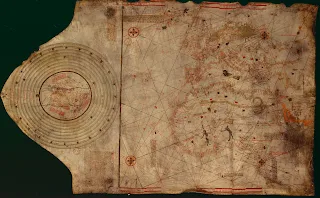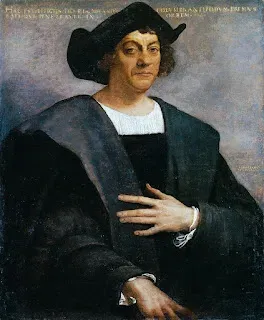Is He The Real Discoverer Of America: Christopher Columbus
Table of Contents
In this post, 101 history facts discuss Christopher Columbus.
Christopher Columbus, an Italian explorer, was born in 1451 in Genoa, Italy. He is widely known for his famous voyage to the Americas in 1492, which led to the discovery of the New World. Columbus embarked on his journey with a crew of 90 men on a smaller ship called the Santa Maria. They landed on an island in the Bahamas, which Columbus named San Salvador, and later explored Cuba and Hispaniola. Although he believed that he had reached the Indies, Columbus had actually landed in the Caribbean. Nevertheless, his voyage opened up the Americas to exploration and colonization, leaving a significant impact on world history.
Is he or Is he not?
It's worth noting that Columbus was not the first to reach America. Native Americans had been living and thriving in North and South America for thousands of years before Columbus's arrival. Columbus made three more voyages to the Americas, exploring the Lesser Antilles in 1493, Trinidad and the northern coast of South America in 1498, and the eastern coast of Central America in 1502. He gave many geographical features names, particularly islands, that are still in use today. Columbus also named the indigenous peoples he encountered "Indians" or "indios."
It's unclear to what extent Columbus was aware that the Americas were a separate landmass. He never explicitly renounced his belief that he had reached the Far East. As a colonial governor, Columbus was accused of significant brutality by his contemporaries and was soon removed from his post. His strained relationship with the Crown of Castile and its appointed colonial administrators in America led to his arrest and removal from Hispaniola in 1500. Later, protracted litigation ensued over the perquisites he and his heirs claimed were owed to them by the crown.
Despite his controversial legacy, Columbus's arrival in the Americas was a significant turning point in history. His journey helped to open up the New World to European exploration and colonization, ushering in a period of conquest and exploitation that lasted for centuries. This transfer of commodities, ideas, and people between the Old World and New World that followed Columbus's first voyage is known as the Columbian Exchange. The exchange had significant impacts on the world, including the spread of diseases, plants, animals, and technologies that transformed the global economy and society.

|
| By Bartolomeo and Christopher Colombus - This file comes from Gallica Digital Library and is available under the digital ID btv1b59062629/f1, Public Domain, https://commons.wikimedia.org/w/index.php?curid=3134818 |
Legacy of Columbus:
Despite the controversies surrounding Columbus, his impact on world history is undeniable. Many places in the Western Hemisphere bear his name, including the country of Colombia, the District of Columbia, and British Columbia. The story of Columbus's journey to the New World continues to captivate the imaginations of people around the world, making him a figure whose legacy will endure for generations to come.
